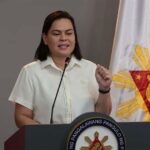Critics claim that the organisation has failed miserably to prevent innumerable disputes. The United Nations Charter, which was signed in 1945, was intended to preserve world peace, advance human rights, and avert conflict. It was once heralded as a ray of hope following the destruction of World conflict II. Eight decades later, however, detractors contend that the Charter has lost much of its effectiveness and is now merely symbolic, frequently broken, and conveniently disregarded by powerful nations.
From Russia’s invasion of Ukraine to conflicts in Gaza, Syria, Sudan, and beyond, the UN has often been reduced to statements and resolutions with little real-world impact. The Security Council, intended as the enforcement arm, is routinely paralysed by veto powers, especially by permanent members like the US, Russia, and China—nations that themselves are often accused of violating international law.
A Powerless Peacekeeper?
Article 2 of the UN Charter explicitly prohibits the threat or use of force against the territorial integrity or political independence of any state. Yet, dozens of military interventions, proxy wars, and occupations have occurred since the Charter’s adoption—with minimal accountability.
Dr. Nina Kravets, an expert in international law, claims that the UN has far too frequently served as a platform for geopolitical theatre rather than peacekeeping.
Even UN peacekeeping operations, which were long seen as the epitome of international cooperation, have come under fire for their narrow mandates, inadequate budget, and, in certain situations, their inability to shield civilians from ethnic cleansing or genocide, as was the case in Rwanda (1994) and Srebrenica (1995).
Reforms or Relevance Crisis?
There have been decades of calls to reform the Security Council to reflect today’s multipolar world. Countries like India, Brazil, and South Africa argue that the current structure—crafted in a post-WWII order—no longer reflects global realities.
However, significant transformation has proven difficult to achieve. The idea that the UN works for the powerful rather than the weak is strengthened by the unwillingness of powerful members to cede control.






